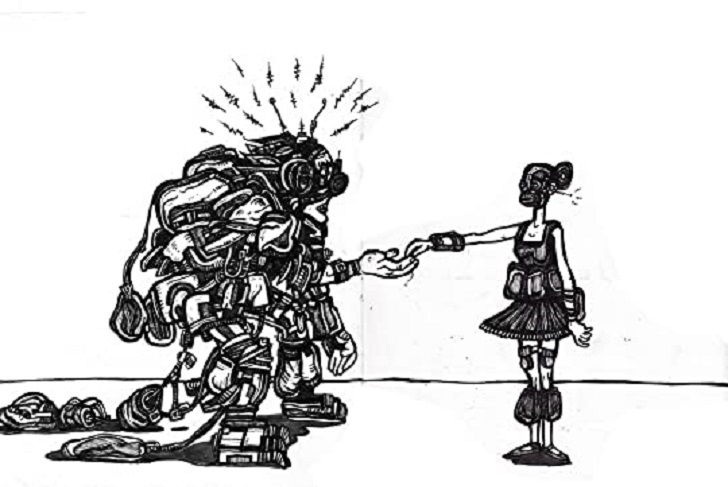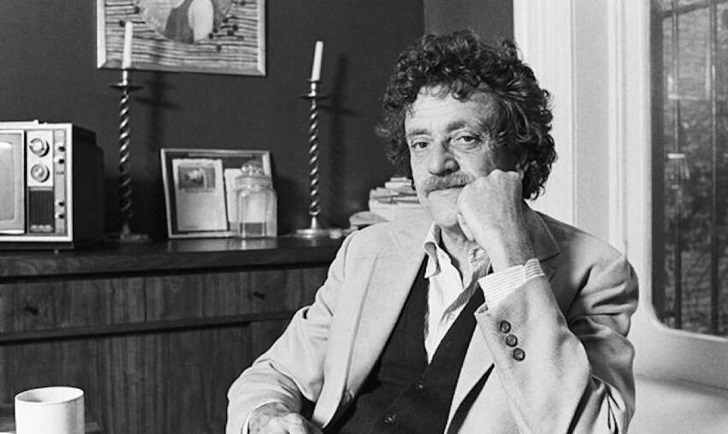Kurt Vonnegut, one of the most influential American writers of the 20th century, often infused his works with sharp wit and biting social commentary. Harrison Bergeron, a short story published in 1961, is a powerful critique of enforced equality. But why did Kurt Vonnegut write Harrison Bergeron? What propelled him to explore such a theme?
The Genesis of Harrison Bergeron
Vonnegut penned Harrison Bergeron during a time of significant social and political change in the United States. The early 1960s saw the rise of various civil rights movements, each advocating for equality but often interpreted through different lenses. Ever the observer of human nature and societal dynamics, Vonnegut noticed a growing emphasis on equality in public discourse.

Train Yourself Ministry | Vonnegut penned Harrison Bergeron during a time of significant social and political change in the United States.
However, Vonnegut's take on equality was unique. He was not content with mere surface-level interpretations. Instead, he delved into the potential pitfalls of enforcing equality at the expense of individuality and freedom. This exploration led him to write Harrison Bergeron, a story set in a dystopian future where the government imposes artificial handicaps to ensure absolute equality among its citizens.
The Core Message of the Story
At the heart of Harrison Bergeron is a scathing critique of extreme egalitarianism. Vonnegut imagines a world where the government enforces equality by handicapping the most gifted individuals to bring them down to the lowest common denominator. The story’s protagonist, Harrison Bergeron, rebels against this oppressive system, highlighting the absurdity and cruelty of such enforced sameness.
Vonnegut's message is clear: while striving for equality is noble, it becomes dangerous when it suppresses fundamental human rights and individual talents. His portrayal of a society that has taken the quest for equality to dystopian extremes is a cautionary tale. It warns against losing personal freedoms and diversity under the guise of equality.

@musicandbooksmonamour | Instagram | Vonnegut's story critiques the political left's potential for overreach in its pursuit of equality and reminds us of the need for vigilance in preserving individual freedoms.
Why Did Kurt Vonnegut Write Harrison Bergeron?
The answer lies in his desire to challenge the prevailing notions of equality and to critique the direction in which society could head if it valued uniformity above all else. Vonnegut's satirical narrative encourages readers to question the balance between equality and freedom and consider the consequences of sacrificing one.
Vonnegut's story critiques the political left's potential for overreach in its pursuit of equality and reminds us of the need for vigilance in preserving individual freedoms. His unique ability to blend dark humor with profound insights allows Harrison Bergeron to resonate with readers decades after its publication.
The Lasting Impact of the Story

@historycoolkids | Instagram | Harrison Bergeron remains a significant work in Vonnegut’s oeuvre and in American literature.
Harrison Bergeron remains a significant work in Vonnegut’s oeuvre and in American literature. It offers a poignant exploration of freedom and equality. Its themes are particularly relevant in contemporary discussions about social justice, equity, and the role of government in regulating these ideals.
As we navigate our own societal challenges, Harrison Bergeron serves as a timeless reminder of the need for balance in our pursuit of equality. Vonnegut’s work encourages a thoughtful examination of how we define and strive for fairness, reminding us that in the quest for equality, we must never lose sight of the individual human spirit that thrives on freedom and difference.




